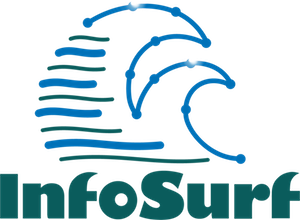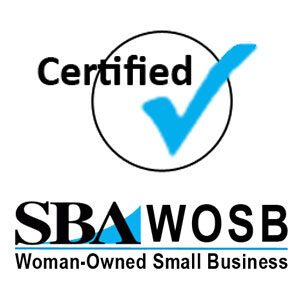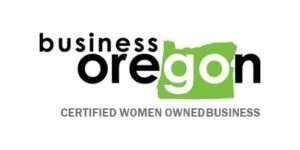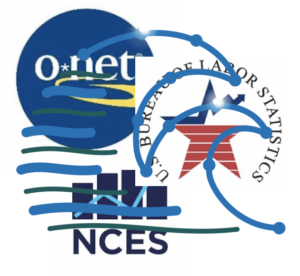
Learn to quickly mine O*Net to more easily match jobs: better matches on candidates or for transitioning people to new jobs or careers.
//Same Job, Many Names ~ Many Jobs, Same Skills//
As a recruiter or employment specialist, you know that the same occupation can have many different job titles. Perhaps, you tune alerts and searches in your recruitment portals or ATS to include those different names, which can go a long way in better search results.
You also know that many occupations have a high enough overlap in skills that a strong worker in one can easily switch to another. Particularly at entry level, we know that people can perform many jobs.
Well, the US Bureau of Labor Statistics knows this, too. In fact, they’ve compiled:
- a 65,000+ list of common job titles, mapping them to their occupations — same required skills and knowledge
- a 16,000+ list of common occupation transitions to and from every occupation in their classification system — similar enough requirements to shift careers.
And they publish a free online database called O*Net that allows us quickly learn about related jobs and occupations in these ways.
//HR Upshot: Expand Your Possibilities//
Whether you are looking to fill a position or helping a downsized employee choose their next adventure, you can use this database to expand your understanding of related jobs: more job titles that fit the occupation you are filling, more occupations people can move in and out of with ease.
//Related Occupations: O*Net Accelerates Discovery//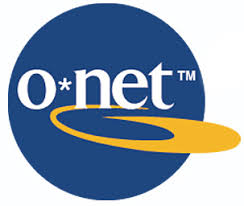
You can quickly look up titles that perform the same occupation and the most common job switches using O*Net (onetonline.org).
The site uses occupation profiles:
- an occupation is that group of many different job titles require essentially the same skills and knowledge.
- occupation profiles dive deep into the requirements, work tasks, education required, wages, and all sorts of related statistical points.
Every occupation profile includes two lists most useful to you, as a recruiter:
- “Sample of reported job titles” — these are the most common job names that form this group of jobs that have the same skills and knowledge, at least at entry level.
- “Related Occupations” — these are the most common career changes to and from that profile’s occupation. Divided into “starter” and “changer” categories, “changer” occupations are often with little to no additional training. “Starters” have less overlap in experience and some skills, but are occupations held before moving into the target occupation.
- Yes, that means a whole additional set of job titles within a related occupation that could bring you your best candidate, if you know about them.
//Try out O*Net//
- Click to look up Secretary
- Sample reported job titles looks very familiar, doesn’t it? Those are the top 10 of the most common job titles or the 60+ included in the database.
- Type “Administrative Technician” or “Administrative Support Specialist”: these are not in the most common, but this occupation is listed first.
- Our eBook, Job Title Surfer, includes the official list of the most common for cruises that require less time.
- Find or click on “Related Occupations“. Makes sense, eh? Those are the top 10 of the most common transitions between this occupation and others.
- Word to the wise: There are often many more than 10 common transitions. This starter/changer data is available or you can use our eBook, Career Flow, for an easier time navigating.
Upside: you can type any job title in the upper right search field and if the search engine finds any close matches, you’ll get to a list of occupations for digging deeper. Almost all of these occupations have more than 10 titles associated with them. O*Net indexes all of them so that searches work.
Downside: you have to enter and scroll through profiles before getting some common titles and common job changes.
//InfoSurf Solutions//
The O*Net online system is extensive, but based on searching, rather than browsing — you know, just looking around, seeing what’s possible.
InfoSurf Career Exploration Books are low cost alternatives that allow you to browse, quickly scanning the new material, then allow you to dive deep when you need.
We recommend these eBooks for recruiters and employment advisors:
- Career Flow indexes the most common career changes that people make. This is a complete listing of “Related Occupations”, not just the top 10 that are listed in the O*Net profiles online. These job changes typically require little to no additional training.
- Job Title Surfer indexes the most common job titles into their occupation classes — those jobs with essentially the same skills and knowledge.
Depending on what level of recruitment you do, you may find others useful:
- Shoreline Career-Education Browser indexes the most common occupations and educational paths — great if you hire a lot of new graduates at any level.
- Our macro-based Excel tool Career-Education Triangulator incorporates from Job Title Surfer and Shoreline for quick reviews of jobs from candidates that may overlap with your open positions.
//Dive Deep into Sources//
If you’d like to understand the data dicing and analysis, you can read InfoSurf’s distillation or the more extensive explanation in O*Net’s Content Model.
